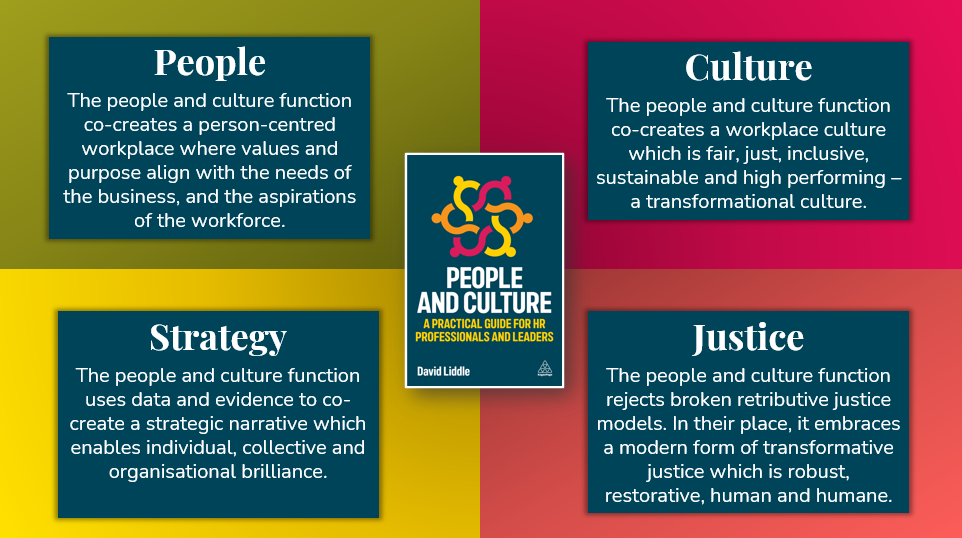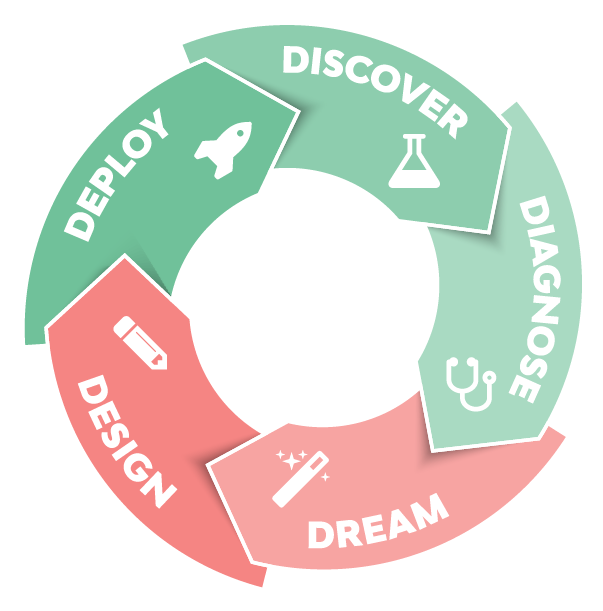TCM's Proprietary Models and Frameworks
TCM's intellectual property and thought leadership
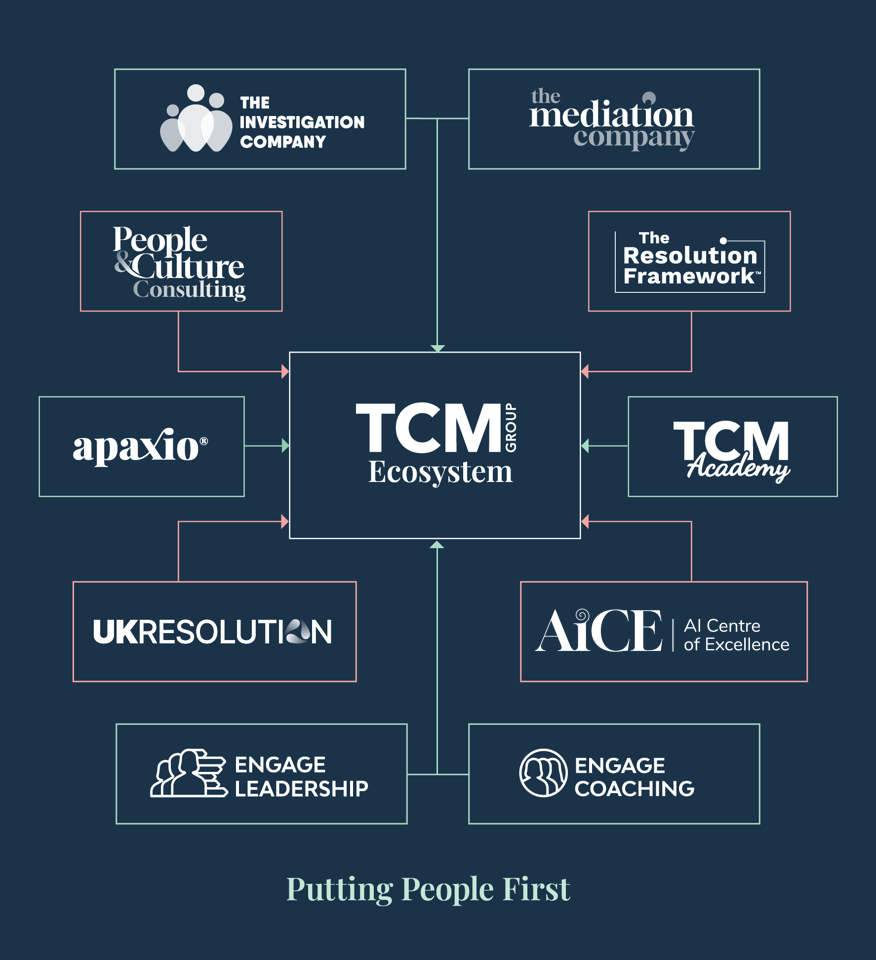
The TCM Ecosystem
The TCM Ecosystem is the result of over 20 years of strategic development and continuous refinement. This unique, integrated structure comprises 10 distinct yet interconnected brands, each supported by a dedicated full-time coordinator (project manager) and a team of world-class consultants. This ecosystem forms the backbone of TCM’s operations, ensuring that each brand functions both independently and in synergy with others to deliver a world leading employee experience (EX) and and unrivalled customer experience (CX).
For our customers, the TCM Ecosystem offers significant advantages, most notably through customized pathways and client journeys that facilitate seamless access to our broad spectrum of services. This structure allows clients wishing to deepen their engagement with TCM to do so confidently, knowing that our rigorously developed infrastructure upholds industry-leading standards of quality and service delivery. Our model has been shown to increase customer satisfaction and retention, creating an environment of sustained excellence and continuous improvement.
The TCM System
Developed by David Liddle over several years, The TCM System™ is The TCM Group’s proprietary framework for project management, change management, and quality assurance. It integrates best practice from various fields, including systems thinking, positive psychology, appreciative inquiry, design thinking, behavioural science, Kaizen, Total Quality Management (TQM), and Agile methodologies. The goal of The TCM System is to provide our customers, consultant partners, and HQ team with a cohesive framework that ensures excellence in the design and delivery of every assignment across all the brands in our ecosystem. It also embeds extensive opportunities for evaluation and continuous improvement, ensuring that our work achieves lasting impact.
The TCM System serves as the foundation for TCM’s preferred change management and OD processes It also draws from widely recognized change frameworks such as the The Culture Flow System™, McKinsey 7S Model, Kotter’s 8-Step Model, Bridges Transition Model, ADKAR, and force field analysis.
Through this approach, we aim to deliver sustained value and build trusted partnerships with our customers.
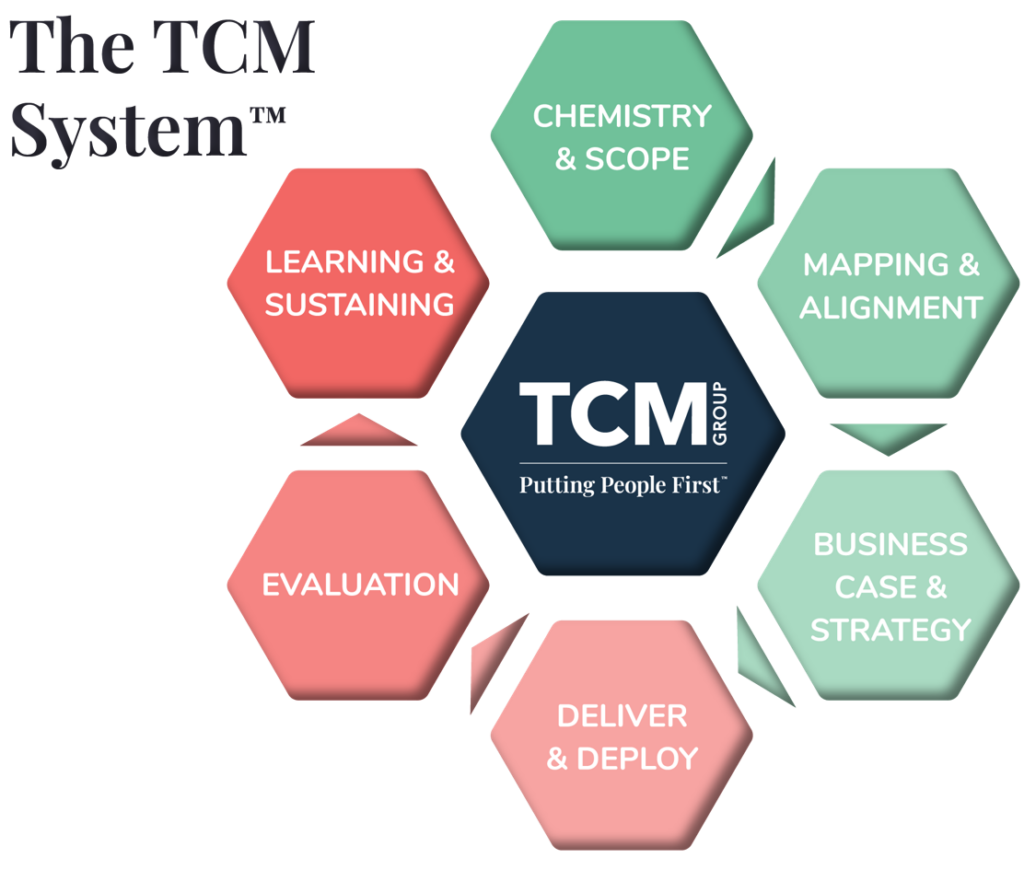

Apaxio
Apaxio® is TCM’s state of the art platform for the people and culture function. A registered trademark of The TCM Group, Apaxio® delivers the following support for people and culture teams:
- A Resolution Framework™ case management system which aligns to the TCM Resolution Framework™ (see below). This is a modern, progressive and fully compliant HR case management system for managing concerns, complaints, conduct and conflicts at work.
- A Resolution Hub which offers your line managers and employees access to a wide array of resources, templates and materials to help them resolve issues constructively and as early as possible.
- A wide range of employee engagement tools and resources.
- Access to support for the integration of The People and Culture Operating Model™ including guidance for people professionals, leaders, managers, employees and others.
- A new model performance management system which we have dubbed the ‘Transformational Performance Management System’ (or TPS).
Apaxio® is also used by UK Resolution as part of our outsourced support package for small and medium sixed organisations: The UK Resolution Support Plan
Liddle's Law (aka The EX Equation™)
Liddle’s Law posits that an organisation’s initiatives to improve wellbeing, engagement, and inclusion are influenced by the effectiveness of its people policies, management processes, and organisational procedures. This foundation is then multiplied by the efforts of supervisors, managers and leaders to cultivate happy, healthy, harmonious, and high-performing workplaces. The resulting outcome provides a measure of employee experience (EX).

The Resolution Framework™
With over 20 years of experience addressing workplace complaints, concerns, conflicts, and conduct issues, we have seen first hand the significant impact of traditional HR policies and management systems on organizations and employees. These outdated approaches, often retributive and adversarial, are increasingly misaligned with the needs of today’s complex, diverse workforce. Evidence shows they can be harmful and counterproductive, and more organizations are now recognizing the importance of prioritizing people over rigid processes.
In 2013, in response to this urgent need for change, our CEO and founder David Liddle introduced The Resolution Framework™. This innovative framework offers a human-centered, compassionate approach to resolving workplace issues by diverting most concerns from traditional responses to restorative and just methods, including mediation, coaching, and facilitation. The Resolution Framework™ is delivering measurable benefits to numerous organizations, fostering values-based, person-centered cultures while generating tangible savings. Esteemed organizations such as Next PLC, Virgin Airlines, NATS, TSB Bank, Aviva, NHS Blood and Transplant, HSBC, Hampshire Police, and many hospitals, universities, police forces, and local authorities have adopted this framework to create healthier, more productive workplace environments.
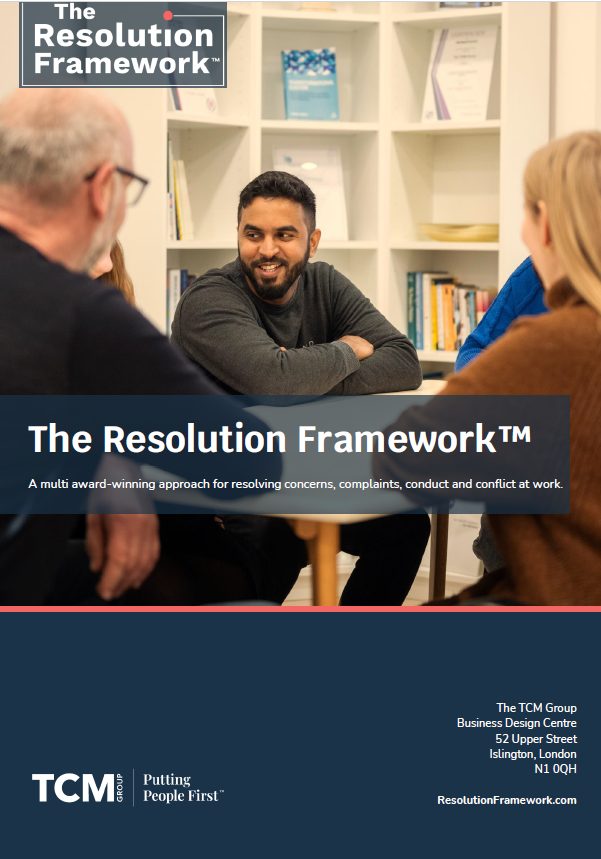
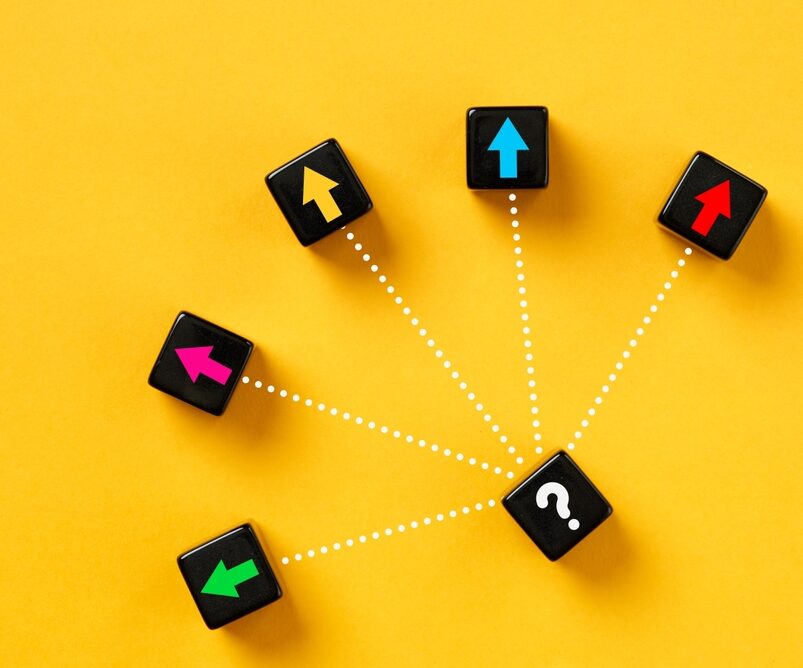
The Resolution Index™
The Resolution Index® is a registered trademark of The TCM Group. It is our proprietary decision making system for triaging and assessing cases to ensure that organisations utilise the most effective and the most appropriate route to resolution in each case.
The Resolution Index® allows organisations to move away from the traditional three step processes which are used in the majority of people policies – grievance, bullying, harassment, discipline capability, performance etc. The evidence from an increasing number of organisations is that these processes are escalatory and adversarial resulting in an adverse user experience.
Using the Resolution Index®, our customers can now make better informed decisions allowing them to tailor a solution based on the unique circumstances of each case. By using an objective decision making process, employees trust the process more and they have a better user experience. In turn, this results in cases being raised earlier thereby reducing levels of anxiety, acrimony, fear and stress. It also means that cases can be resolved with less disruption, reduced financial cost and decreased reputational harm for the employer.
The Transformational Triangle™
First introduced in his 2021 book, ‘Transformational Culture’, the Transformational Triangle shows the relationship between the three core elements of a positive workplace culture:
- People and culture (The new name for the HR function).
- Transformational Leadership.
- Transformative Justice.
Where these three elements align the impact is that the organisation is benefiting from a culture which is fair, just, kind, inclusive, sustainable and high performing- a transformational culture.

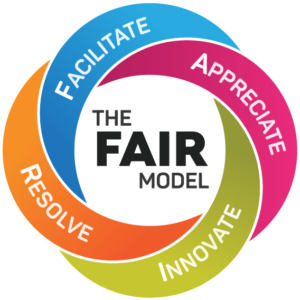
The FAIR Model™
A compassionate, empathetic and human-centric method for resolving workplace issues.
Originally applied to our mediation services, the FAIR Model™ has been expanded to solve a full range of managerial concerns, customer complaints and workplace conflicts. The model has been designed to identify the root cause of an issue, while also engendering a pragmatic problem-solving approach.
Developed by David Liddle, this highly effective and well-regarded model is used by some of the biggest household names such as; Royal Mail, HSBC, Aviva, Network Rail, British Airways, London Ambulance Service, Lloyds Banking Group, The Metropolitan Police, BT, The DWP and numerous universities, councils and healthcare trusts.
Facilitate. Appreciate. Innovate. Resolve.
The Transformational Culture Model™
The Transformational Culture Model™ is a blueprint for a purpose driven, values based and person centred workplace. Designed by David Liddle and featured in his best selling book ‘Transformational Culture‘ (2021), the model is being used by numerous organisations across the world as a basis for a positive and productive workplace culture.
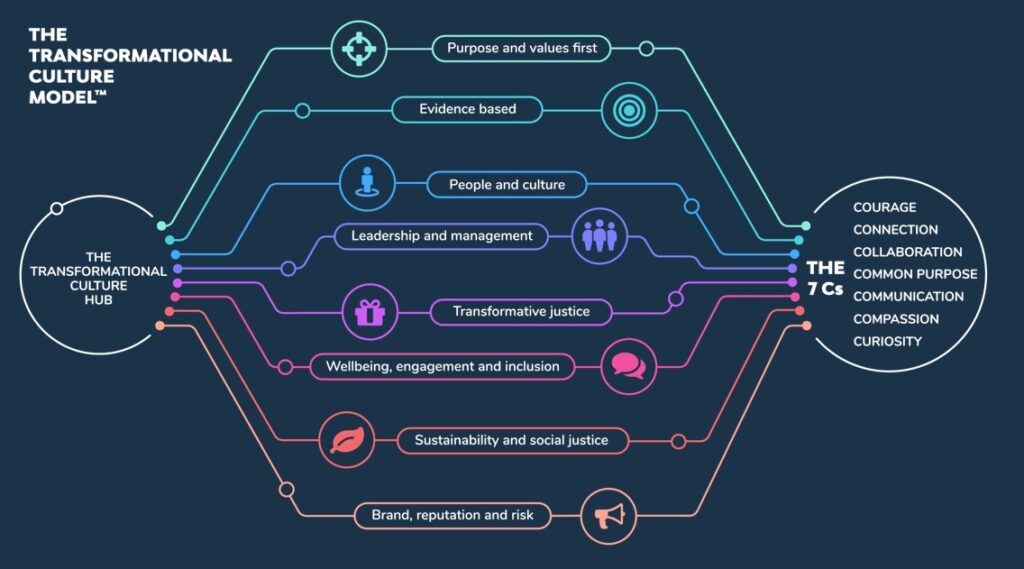
© The Transformational Culture Model™ by David Liddle
The 7Cs Model™
The 7Cs Model™ was first created by David Liddle when he was devising TCM’s Engage Leadership approach. It then featured in his book Transformational Culture where the 7Cs were fully integrated into his Transformational Culture Model™ (see above).
These 7 dimensions of transformational leadership play a pivotal role in TCM’s leadership and management development programmes. Each of them features heavily in our culture change and cultural transformation activities. They are also used as functional elements in our leadership reviews and mapping exercises plus many of our customers use them as a basis when they are developing their leadership competency and capability frameworks.
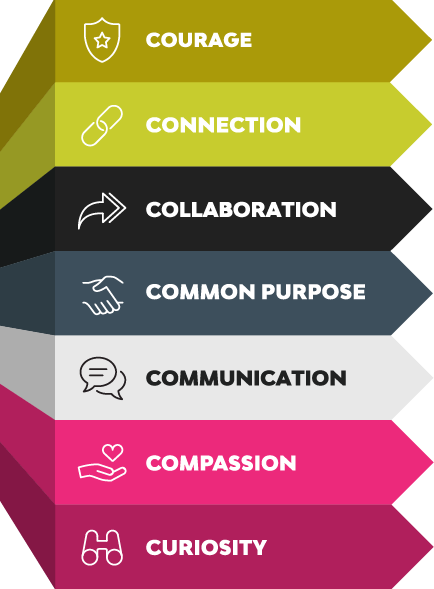
The People and Culture Operating Model™ by David Liddle
In 2021, David released his pioneering People and Culture Operating Model. It has quickly gained traction as a blueprint for a reimaging of the traditional human resources (HR) function. This exciting new operating model is already being implemented by numerous organizations aiming to build transformational cultures—ones that prioritize employee well-being, equity, and growth alongside organizational goals.
The People and Culture Operating Model features four core quadrants that address the comprehensive needs of today’s progressive workplaces:
People. Culture. Strategy. Justice.
The Culture Flow System™ by David Liddle

The Culture Flow System™ is our proprietary culture change framework which supports people professionals and business leaders to connect the dots between team climate and organisational culture. As well as being a valuable change management tool, it can also be be used in culture mapping and culture audits and it provides a baseline for TCM’s innovative Culture Insights™ culture audit. See below for more details.

Culture Catalysts™
Culture Catalysts™ is TCM’s trademark culture change development programme for people professionals, leaders and managers. Delivered over 2 days, the training delivers the skills and capabilities required to create and sustain a transformational culture.
Day 1 covers the core features, advantages and benefits of a transformational culture.
Day 2 covers the various change management models which can be used to drive the culture change.
In addition to the two day course, we also deliver an advanced version of Culture Catalysts™ whereby participants receive 12 months of team and individual coaching to support them on their cultural transformation journey.
Prevent | Resolve | Transform®
This is a registered trademark of The TCM Group. We use it as a tagline for our UK Resolution brand. It clearly explains the value proposition for our customers. These include small and medium sized enterprises (SMEs), family run businesses, social enterprises, charities, GP practices and GP networks, parish councils, regulators, trade bodies and professional associations.
Learn more at:

Quality Conversations®
At TCM we don’t believe conversations should be ‘difficult’ or that you should have to be ‘courageous’ to have them. Using this language sets them up all wrong. It makes dialogue something to be unsure about or worse, guarded about. We believe that a Quality Conversation should be part of every day business. The art of talking and listening should be a core competency for every single manager, leader and people professional.
By normalising dialogue in this way, we not only build trust, strengthen connections, and foster a positive team climate, but we also unlock three essential pillars of high-performing teams and a thriving culture:
Insight. Creativity. Learning
We would go as far as to say that without Quality Conversations™, how can an organisation ever truly grow and succeed?
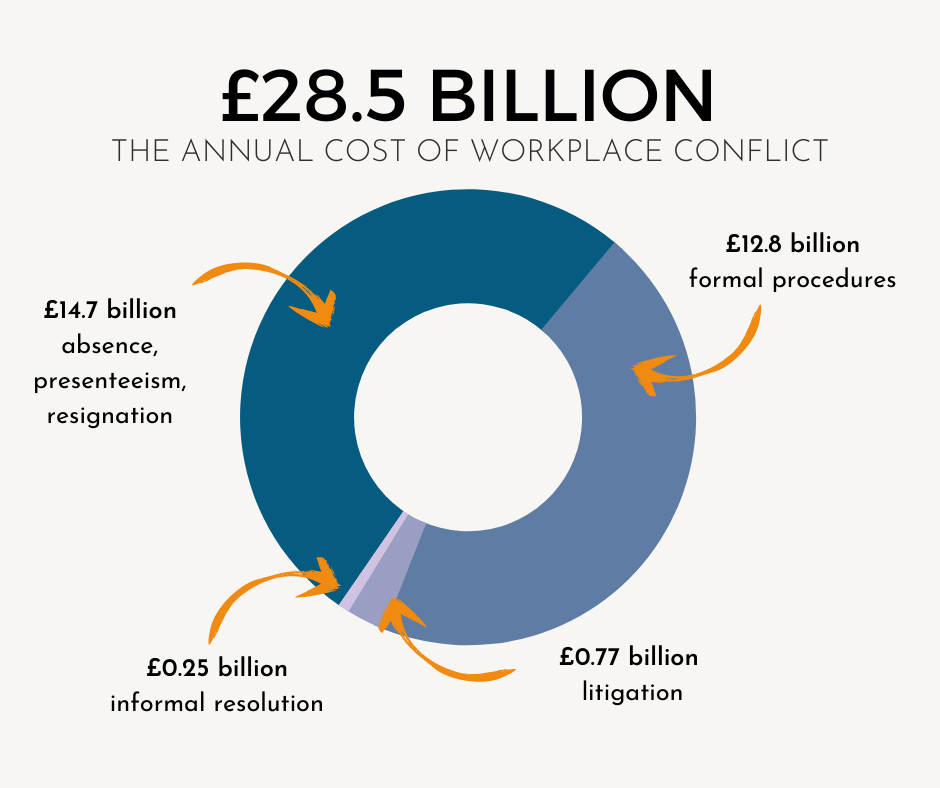
The Cost of Conflict Calculator™
David Liddle created The Cost of Conflict Calculator™ in 2007 to assist organisations to assess the financial, human and organisational costs of conflict. It has been subject to rigorous testing and review since that time.
The Cost of Conflict Calculator™ features in many of TCM’s audits and reviews. It has been used by many hundreds of organisations to help them assess the impact of conflict, and to build the business case for integrating a Resolution Framework™ and/or an internal mediation scheme.
The Cost of Conflict Calculator™ featured in David’s ground breaking and highly acclaimed first book ‘Managing Conflict’ (2017/2023). It is widely referenced by practitioners and academics alike.
Culture Insights™
Developed and tested over several years, Culture Insights™ from The TCM Group is a powerful culture audit unlike any other. Using the TCM Groups 5D Method™ (see above) we gather data using three powerful methodologies:
- Normative Data
- Quantitative Data
- Qualitative Data
To ensure a scientific and empirical approach is applied, we use the Transformational Culture Model™ and the Culture Flow System™ as baselines. This means that you can be confident that, whilst our culture audits are thorough and rigorous, they are also strengths based and future focussed.









